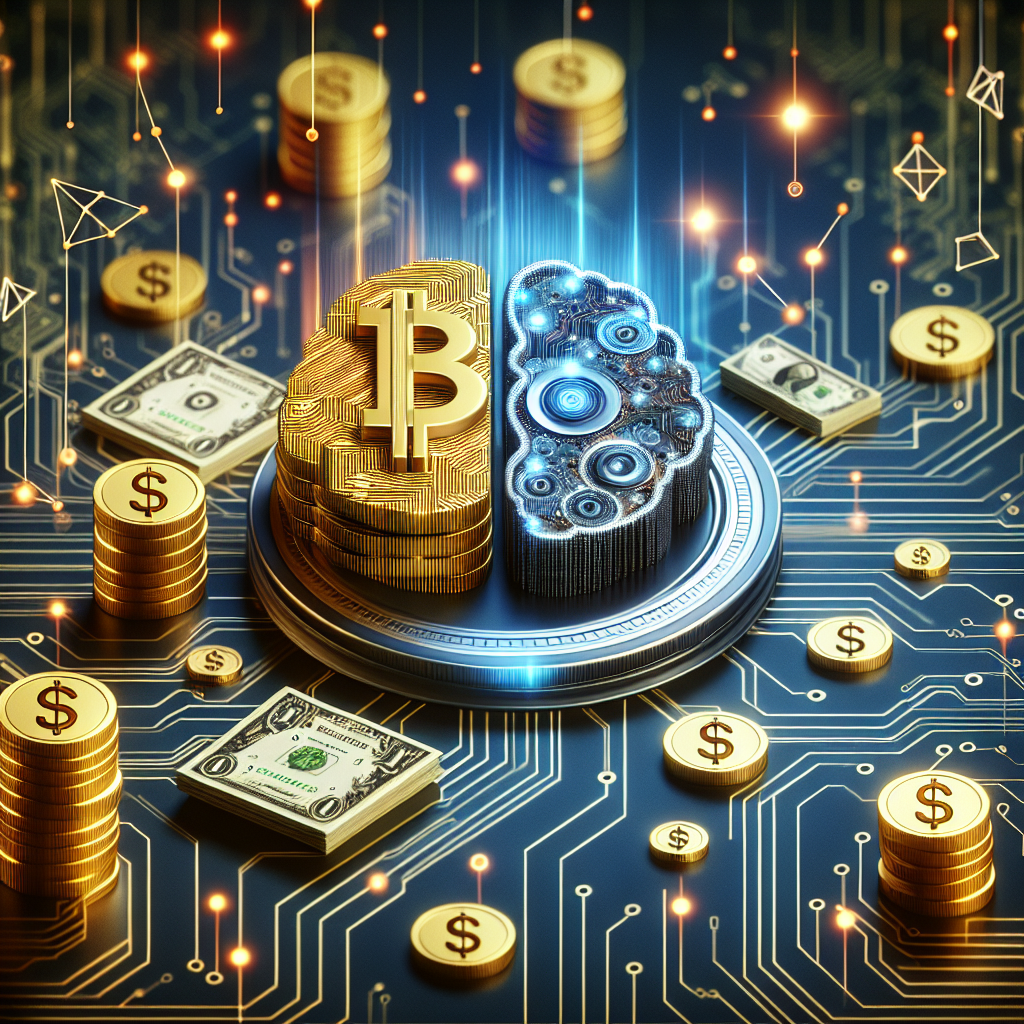The advent of artificial intelligence (AI) has revolutionized many industries, and the gaming industry is no exception. AI-powered game economy optimization is a game-changer that is transforming the way games are developed, monetized, and played. In this article, we will explore the concept of AI-powered game economy optimization, its benefits, challenges, and potential impact on the gaming industry.
What is AI-Powered Game Economy Optimization?
AI-powered game economy optimization refers to the use of AI algorithms and machine learning techniques to analyze player behavior, predict player actions, and optimize in-game economies to maximize player engagement and revenue. By leveraging AI technology, game developers can create dynamic and personalized experiences for players, leading to increased player retention, monetization, and overall game success.
AI-powered game economy optimization involves several key components, including:
1. Data Collection: AI algorithms require vast amounts of data to learn and make informed decisions. Game developers collect data on player behavior, game mechanics, in-game transactions, and other relevant metrics to feed into AI models.
2. Analytics: AI algorithms analyze the collected data to identify patterns, trends, and insights that can be used to optimize the game economy. This includes predicting player behavior, identifying revenue opportunities, and optimizing in-game pricing and rewards.
3. Optimization: Based on the insights generated by AI algorithms, game developers can make data-driven decisions to optimize the game economy. This may involve adjusting in-game prices, balancing game mechanics, or introducing new features to enhance player engagement and monetization.
Benefits of AI-Powered Game Economy Optimization
There are several key benefits of AI-powered game economy optimization for both game developers and players:
1. Personalized Player Experience: AI algorithms can analyze player behavior and preferences to create personalized experiences for each player. This leads to higher player engagement, satisfaction, and retention.
2. Revenue Optimization: By analyzing player spending habits and in-game transactions, AI algorithms can identify revenue opportunities and optimize in-game pricing and rewards to maximize revenue.
3. Dynamic Game Economy: AI-powered game economy optimization enables developers to create dynamic and responsive in-game economies that adapt to player behavior in real-time. This leads to a more immersive and engaging gaming experience.
4. Data-Driven Decisions: AI algorithms provide developers with valuable insights and data-driven recommendations to make informed decisions about game design, monetization strategies, and player engagement.
Challenges of AI-Powered Game Economy Optimization
While AI-powered game economy optimization offers many benefits, there are also several challenges that developers may face:
1. Data Privacy: Collecting and analyzing player data raises concerns about data privacy and security. Developers must ensure that they comply with data protection regulations and obtain consent from players before collecting their data.
2. Bias and Fairness: AI algorithms can be biased and make unfair decisions if they are trained on biased data. Developers must be vigilant in monitoring and addressing bias in AI models to ensure fairness and equality for all players.
3. Implementation Complexity: Implementing AI-powered game economy optimization requires specialized skills and resources. Developers may face challenges in integrating AI algorithms into existing game systems and workflows.
4. Transparency and Accountability: AI algorithms are often perceived as black boxes that make decisions without explanation. Developers must ensure transparency and accountability in their AI models to build trust with players and stakeholders.
Impact on the Gaming Industry
AI-powered game economy optimization has the potential to transform the gaming industry in several ways:
1. Enhanced Player Engagement: By creating personalized experiences and dynamic game economies, AI-powered games can attract and retain players for longer periods. This leads to increased player engagement and loyalty.
2. Increased Monetization: AI algorithms can identify revenue opportunities and optimize in-game monetization strategies to maximize revenue. This can help developers generate more income from their games and sustain their business in the long term.
3. Innovation and Creativity: AI-powered game economy optimization enables developers to experiment with new ideas, mechanics, and features that can enhance gameplay and player experience. This can drive innovation and creativity in game development.
4. Competitive Advantage: Game developers who leverage AI-powered game economy optimization have a competitive advantage in the market. They can offer unique and engaging experiences that set them apart from their competitors and attract a larger player base.
FAQs
Q: How does AI-powered game economy optimization benefit players?
A: AI-powered game economy optimization benefits players by creating personalized experiences, enhancing player engagement, and optimizing in-game rewards and pricing to maximize player satisfaction.
Q: Is AI-powered game economy optimization ethical?
A: Developers must ensure that AI-powered game economy optimization is ethical by addressing bias, ensuring transparency, and respecting player privacy and consent.
Q: What are some examples of AI-powered game economy optimization in action?
A: Examples of AI-powered game economy optimization include dynamic pricing in mobile games, personalized recommendations in online games, and predictive modeling in virtual economies.
Q: How can game developers implement AI-powered game economy optimization in their games?
A: Game developers can implement AI-powered game economy optimization by collecting and analyzing player data, training AI algorithms on relevant metrics, and using AI insights to optimize in-game economies.
In conclusion, AI-powered game economy optimization is a game-changing technology that is reshaping the gaming industry. By leveraging AI algorithms and machine learning techniques, game developers can create personalized experiences, optimize in-game economies, and maximize player engagement and revenue. While there are challenges to overcome, the benefits of AI-powered game economy optimization are substantial, and its impact on the gaming industry is likely to be profound.

